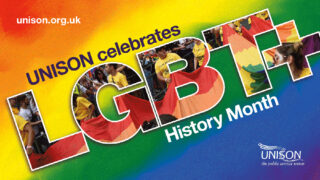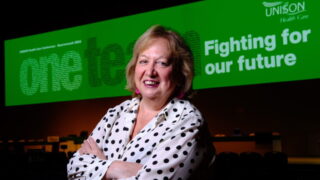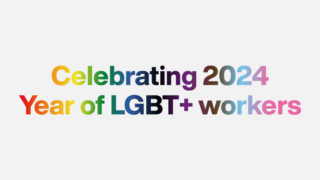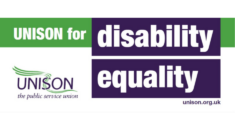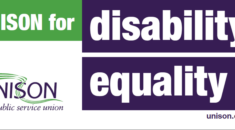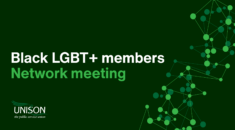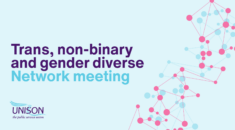The second day of UNISON’s national women’s conference opened with debate on ensuring that the union’s LGBT group is as inclusive as possible.
That self-organised group is taking a motion to national delegate conference in June, asking conference to vote to enable a rule book change so that the group can call itself LGBT+.
“Our group has always sought to be inclusive of its membership,” Jacky Lewis told delegates today. That’s why we are “asking for your support”. A rule change will need a two-thirds majority in favour in June.
Bev Miller said that “the ‘plus’ is all about inclusivity. It makes sense to add the ‘plus’ … to address the issue of some members feeling excluded.
“Some words are entirely English,” she noted, and do not reflect how some people from a variety of different ethnic and cultural backgrounds might describe themselves.
Emma Proctor from the national women’s committee told conference that “we, as women in UNISON, work to actively overcome the barriers that affect us.” Equalities was not just a “box-ticking exercise,” but a “dynamic” process, she added.
We want to “celebrate the multiplicity of our identities”.
Conference unanimously backed the move.
In a busy morning, delegates also discussed disabled members’ rights and the fear that Brexit will see the Equality Act undermined. UNISON must be prepared to fight any attempt to do that.
On period poverty, delegates heard that some women are turning to food banks for sanitary protection. Access to period care is a basic right. It’s about time that all women had access to free sanitary protection.
One delegate spoke of how she has told her male manager that she has had to take a day off work for a stomach upset or a bug, because she’s been too embarrassed to says that she has had serious period pain.
Pat Jones from Cymru-Wales said that the Welsh Assembly has granted £1m to tackle the issue. Saying that this is a good start, she called on branches to raise the issue with local councils and to work with charities that deal with the problem.




